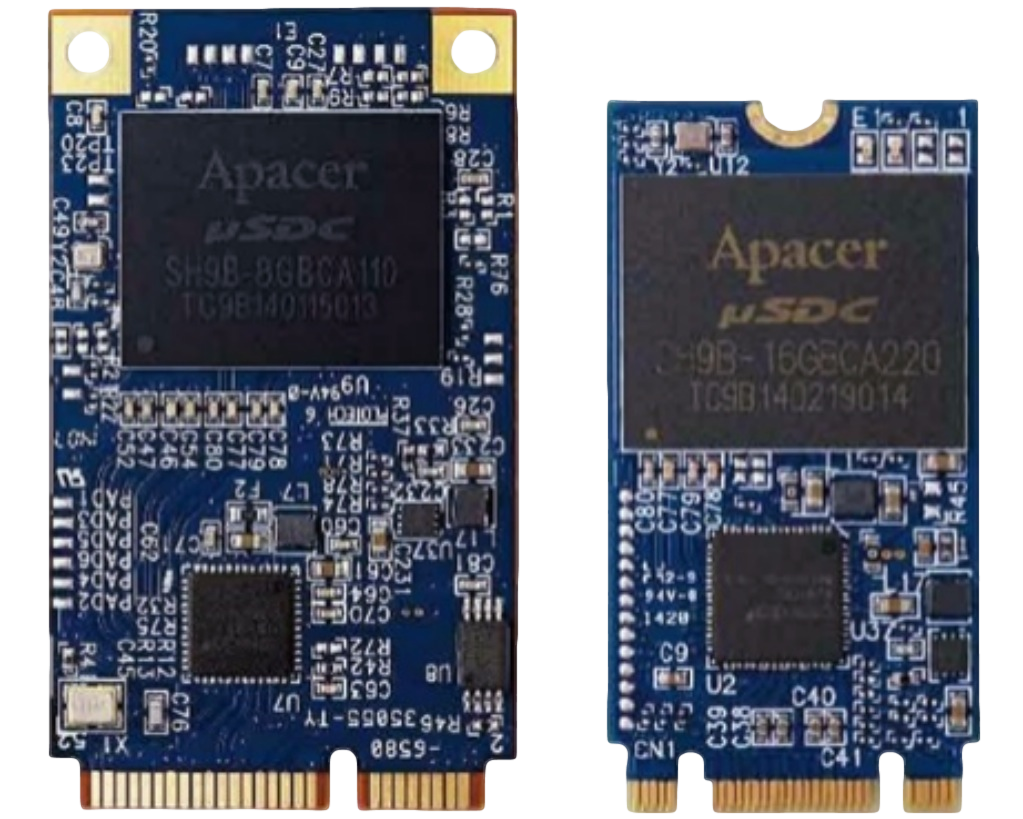Since Apple’s adoption of the PCIe SSD in the 2013 MacBook Air, the market for PCIe SSD’s has exploded in popularity. The best part about it that we as consumers are reaping the benefits of incredible data transfer speeds, while the size of the SSD is dramatically decreasing. Today, another manufacturer, Apacer, has announced that they will responding to this demand by introducing two new SSD’s.
Who’s Apacer? This manufacturer has ten years of SSD experience in the vicious flash memory industry, and focuses on a wide range of industrial SSD’s, digital consumer products and memory modules. Interestingly enough, Apacer is reported to be one of the few Taiwanese manufacturers that have the research and development capacity for software, hardware and firmware.
The first SSD being introduced is the mPDM+ SSD, which is a SSD that has adopted the mSATA motherboard port. This is an excellent storage option for the mSATA port on your motherboard. The forecasted read speed is expected to be 385 MB/s. The mPDM+ would be an easy upgrade to any system, especially if you are making the jump from a hard drive. The second SSD being introduced is the M.2 NGFF PCIe SSD, which is expected to hit sequential read speeds of up to 780 MB/s. Read speeds nearly double the mPDM+, yet 40% smaller in physical size.
Jeff Lin, Embedded Application Business Unit Director of Apacer, indicated that, “Our mPDM+ SSD adopts Mini PCIe module, boasting a read speed of 385 MB/sec through the transmission of Gen2x1 . As its dimension goes in line with that of mSATA products, it is currently a pain-free upgrade solution directly replacing the storage device of the original mSATA SSD on the motherboard.” In regards to the M.2 form factor, he continues to indicate that “The newly launched M.2, i.e. the NGFF (Next Generation Form Factor), adopts PCIe 2.0 interface which has a broadband speed up to 10Gb/s compared to PCIe 1.0. In addition, the additive transmission efficiency of Gen2x2 enables the sequential read speed up to 780MB/sec, far more efficient than the theoretical 600MB/sec transmission performance of SATAIII. High-end applications such as network storage or enterprise servers are thus capable of faster transmission.”
At this point in time, we haven’t heard what the expected pricing will be for the newly introduced PCIe SSD’s. However, Apacer has indicated that the SSD’s will match the AHCI and have a capacity of up to 128 GB. We can only speculate that the peak storage capacity of 128 GB will yield these PCIe SSD’s a cost efficient option.
 The SSD Review The Worlds Dedicated SSD Education and Review Resource |
The SSD Review The Worlds Dedicated SSD Education and Review Resource | 

Given how small that controller looks (and apperently no dram) that surly won’t be fast.
Hopefully, it will be cheap enough to make sense.